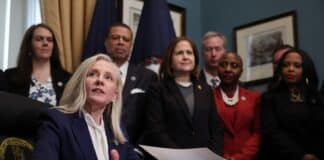The Internal Revenue Service (IRS) said in a court filing that churches may endorse political candidates to their congregations. The development serves as a major victory for First Amendment rights.
According to the IRS, communications between churches and their congregations may be compared to family discussions and are not considered direct involvement in political campaigns.
“Bona fide communications internal to a house of worship, between the house of worship and its congregation, in connection with religious services,” do not stand as participation or intervention in political campaigns “any more than does a family discussion concerning candidates,” the court filing says. “Thus, communications from a house of worship to its congregation in connection with religious services through its usual channels of communication on matters of faith do not run afoul of the Johnson Amendment as properly interpreted.”
“This interpretation of the Johnson Amendment is in keeping with the IRS’s treatment of the Johnson Amendment in practice,” the filing explains. “As recounted in Plaintiffs’ Amended Complaint, the IRS generally has not enforced the Johnson Amendment against houses of worship for speech concerning electoral politics in the context of worship services.”
The court filing intends to settle a lawsuit filed by two Texas churches and the National Religious Broadcasters Association, which argued that the Johnson Amendment violates the First Amendment. Named after then-Senator Lyndon Johnson, the policy says that tax-exempt organizations cannot “participate in, or intervene in (including the publishing or distributing of statements), any political campaign on behalf of (or in opposition to) any candidate for public office.”
During his first presidential term, President Donald Trump signed an executive order limiting the enforcement of the Johnson Amendment. “In particular, the Secretary of the Treasury shall ensure, to the extent permitted by law, that the Department of the Treasury does not take any adverse action against any individual, house of worship, or other religious organization on the basis that such individual or organization speaks or has spoken about moral or political issues from a religious perspective, where speech of similar character has, consistent with law, not ordinarily been treated as participation or intervention in a political campaign on behalf of (or in opposition to) a candidate for public office by the Department of the Treasury,” Trump’s 2017 order read.





